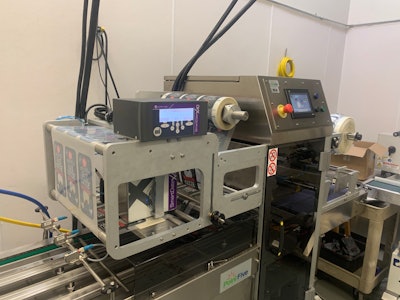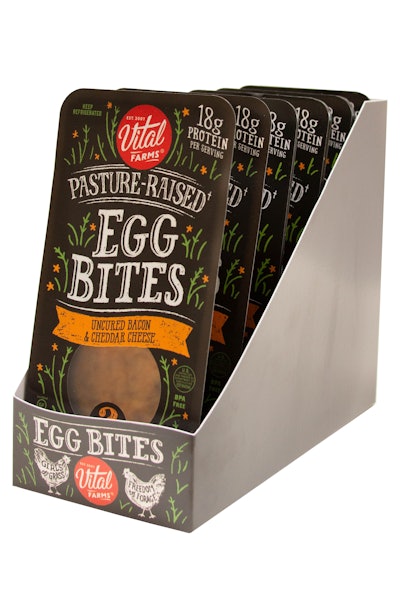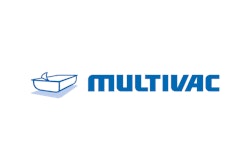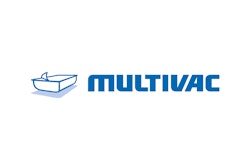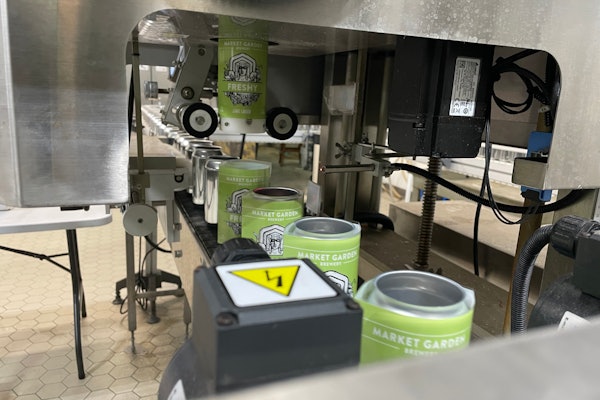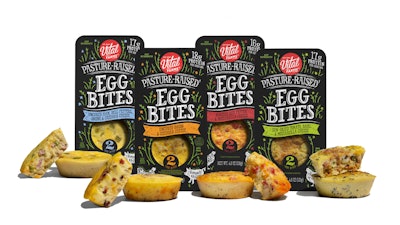
Prior to the pandemic, a new breakfast trend had been sweeping the U.S. Popularized by major café chains in quick service or foodservice settings, sous vide-cooked egg bites containing classic but elevated ingredient pairings were quickly becoming a breakfast staple for busy café patrons on their way into the office in the morning. The pandemic temporarily disrupted the foodservice category, but the secret was out about sous vide egg bites—the market had been created, the demand had been nurtured, and Americans needed it filled.
Meanwhile, keenly watching this foodservice trend unfold was Vital Farms, a Certified B Corporation that offers a range of pasture-raised foods nationwide. The company was founded in 2007 by husband-and-wife Matt and Catherine O’Hayer with 20 Rhode Island Red hens, a 27-acre plot of pasture in Austin, Texas, and an unwavering commitment to animal welfare. The pair aspired to produce ethical food and a sustainable business. Instead, they built a transformational one. Today, Vital Farms partners with over 200 small family farmers to produce egg and dairy products. Every hen is humanely treated, and every egg is pasture-raised. Vital Farms continues to elevate its (and the industry’s) standards, continuing Matt’s commitment to a philosophy called Conscious Capitalism, founded in the belief that the free market can and should do good. 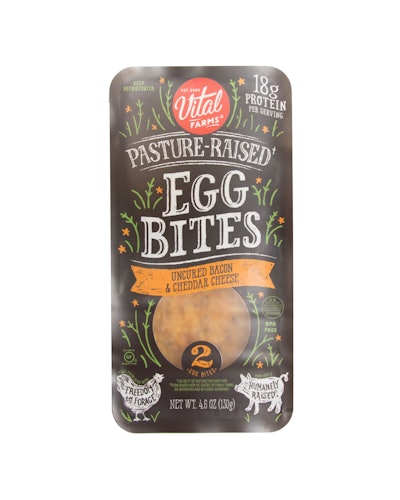 The lidding material is a polyethylene-based multilayer structure with an EVOH barrier. The lidding is flexographically printed in four colors and uses a transparent window to display the egg bite within.
The lidding material is a polyethylene-based multilayer structure with an EVOH barrier. The lidding is flexographically printed in four colors and uses a transparent window to display the egg bite within.
By volume, the company is now the number one pasture-raised egg brand in the U.S. and the number two egg brand overall. Vital Farms initially made its name as a shell-egg company—selling whole, premium pasture-raised shell eggs in traditional 12- to 18-egg cartons. A few years after its founding, Vital Farms broadened its brand, building on its success as a trusted pasture-raised egg brand, and expanded to new categories.
“We now have several products that are extensions of our shell egg business, including hardboiled eggs, liquid eggs and our newer convenient breakfast products Egg Bites and Breakfast Bars,” says Jermaine Harvey, Director of Contract Manufacturing, Vital Farms. “Like our shell egg business, we partner with small family farms on the dairy side to produce our butter and ghee products from pasture-raised cows. The pasture-raised cows receive the same care and humane treatment as the hens that produce our shell eggs. We will never compromise the ethical standards we have practiced since day one.”
By now, you can see where this is headed. Since the sous vide egg bite category was essentially a new one, a yolk-colored gold rush to meet consumer demand was on in recent pre-pandemic years. Vital Farms was early to throw its hat into the egg-bite ring, based on the belief that it had a secret weapon in the category—a higher quality egg bite made with the ethically sourced ingredients for which Vital Farms is known.
Not to mention, while foodservice hatched the egg bite trend, an opportunity to crack the retail space was there for the taking. Vital Farms already had deep connections with like-minded retailers, including Whole Foods Market. From that confluence of trends and events, Vital Farms’ Pasture-Raised Egg Bites were born.
Says the company website, “We took our pasture-raised eggs (that you know and love!), combined them with pasture-raised cheese, humanely raised meats, and veggies to create a protein-packed breakfast. Now you can eat like a morning person without waking up like one.”
Every pack comes with two Egg Bites, has 16 to 18 g of protein per serving, and is ready to eat after just 45 seconds in the microwave. Available in four flavor combinations—uncured bacon and cheddar; uncured ham, bell pepper, onion, and cheddar; roasted red pepper and mozzarella; and sun-dried tomato, basil, and mozzarella—these single-serve refrigerated egg bites are certified gluten-free and packaged in microwavable, recyclable, BPA-free packaging, the company says. 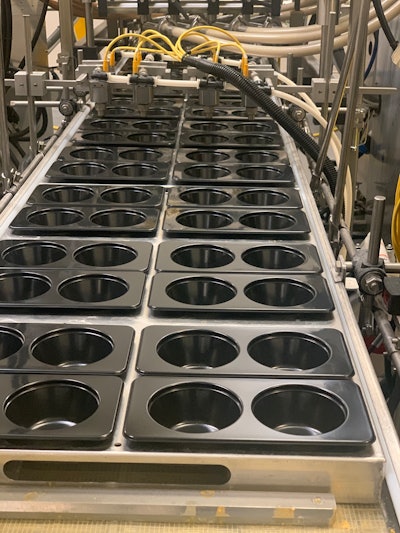 When gauged correctly, CPET trays are known for their ability to withstand higher temperatures without too much deformation.
When gauged correctly, CPET trays are known for their ability to withstand higher temperatures without too much deformation.
Out-of-the-shell thinking
But in a bid to create some market differentiation—this was the wild west of egg bites, after all—Vital Farms’ sales and marketing teams had a “wild idea” (according to Harvey) to create a baked product that looked more homestyle with toasted notes, while consolidating the processing and packaging steps by baking in-pack rather than processing, then packaging. And since they’d be baking in the pack at the production facility, couldn’t the pack also withstand a microwave in the consumer’s home? And finally, could in-pack baking, instead of sous vide, provide yet another point of differentiation by imparting a hint of crisped, browned crust to the egg tops via dry heat cooking using a tunnel oven?
